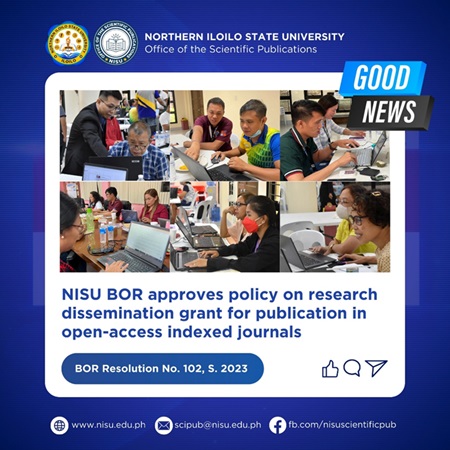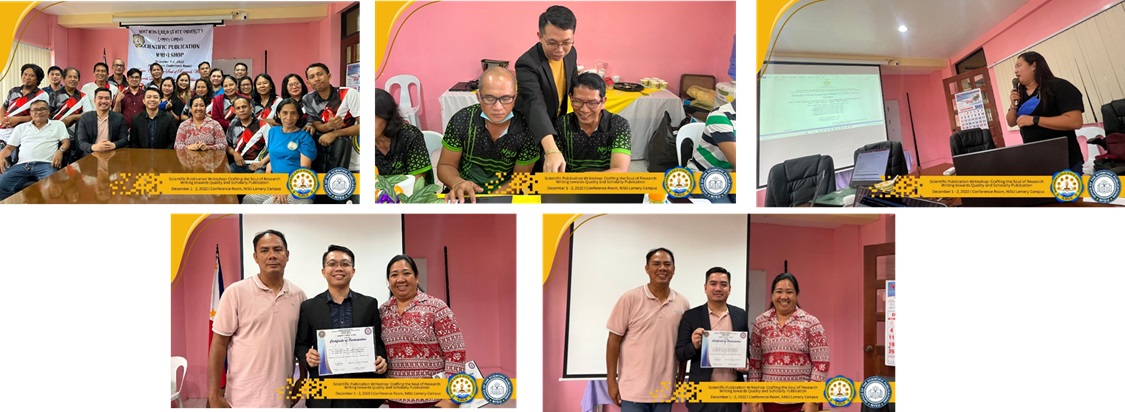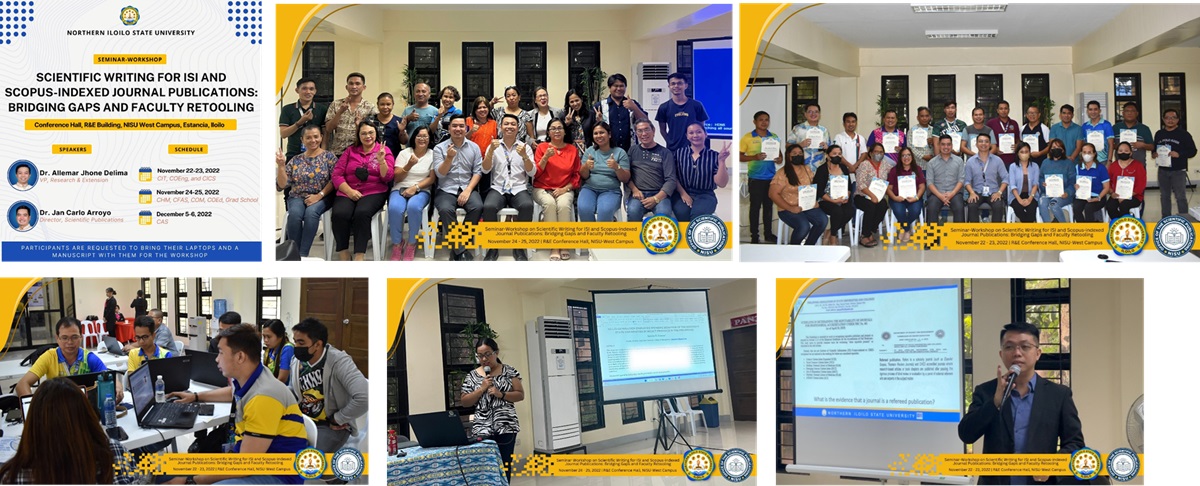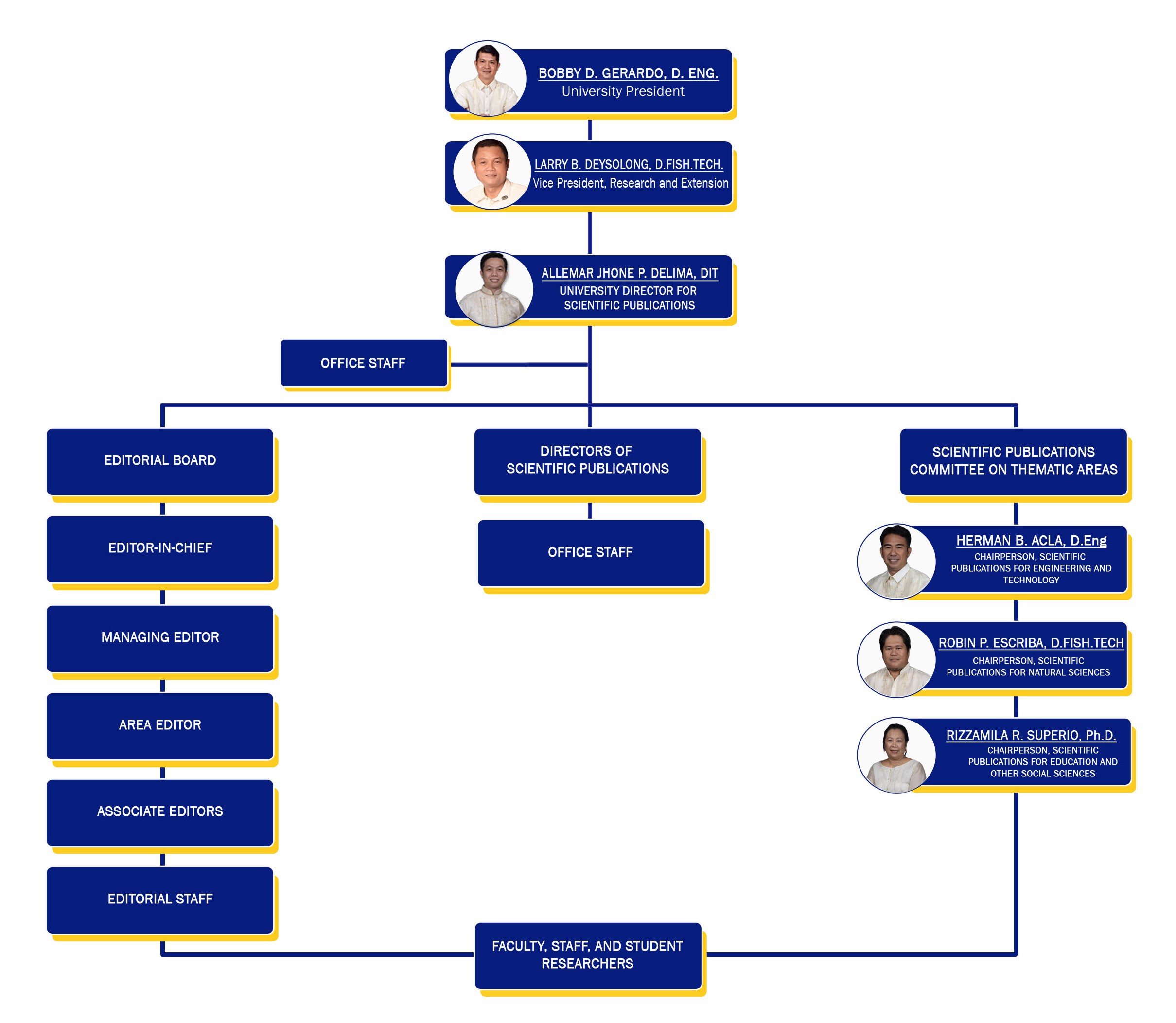

In a monumental decision made during the December 4, 2023 Board of Regents (BOR) meeting, Northern Iloilo State University (NISU) has been given the green light to implement the policy on Research Dissemination Grant for Publication in Open-Access Indexed Journals through BOR Resolution 102, S. 2023.
This policy, set to take effect in 2024, is a significant step toward promoting inclusivity and enhancing the impact of NISU's research initiatives.
The decision comes in response to the evolving landscape of scientific journals operating under open-access platforms. NISU recognizes the numerous benefits of increased visibility and citation potential associated with these platforms. By facilitating publication in open-access indexed journals, the university aims to empower researchers and break down barriers to the dissemination of valuable research findings.
Addressing the financial challenges faced by authors in covering Article Processing Charges (APC) or Publication Fees, the policy seeks to level the playing field. NISU acknowledges that not all authors have the necessary resources, and this discrepancy can hinder the sharing of valuable research. The grant, however, will be subject to specific terms and conditions in compliance with government accounting and auditing regulations, ensuring transparency and accountability.
The rationale behind the policy also stems from the NISU’s desire to amplify its research impact. Despite a wealth of research findings, NISU has faced limitations in having studies published in high-impact and respected journals due to high publication costs. This new policy aims to change that narrative, fostering an environment where researchers can contribute meaningfully to the global scientific discourse.
In championing this initiative, NISU, through the Office of the Vice President for Research and Extension, and the Office of the Scientific Publications, reaffirms its dedication to academic excellence and the creation of a research environment that not only produces groundbreaking discoveries but ensures they reach a wider audience. Stay tuned as NISU embarks on this new chapter, breaking barriers, and reshaping the future of academic research in 2024 onwards!

The NISU-Lemery Campus successfully conducted a two-day seminar-workshop on Scientific Writing and Publication on December 1–2, 2022, as part of its continuous efforts to strengthen research culture and academic excellence. The event was attended by faculty members and staff who were eager to enhance their skills in producing high-quality, publishable research outputs.
Invited as resource speakers were Dr. Allemar Jhone Delima, Vice President for Research and Extension, and Dr. Jan Carlo Arroyo, Director for Scientific Publications. Both speakers delivered engaging and informative sessions that covered essential aspects of scientific writing, including the structure of a research paper, effective literature review, data presentation, ethical considerations, and strategies for getting published in reputable journals.
The seminar-workshop provided a balance of theoretical foundations and practical applications, including hands-on activities that allowed participants to critically evaluate and refine their own research manuscripts. The interactive nature of the workshop fostered collaboration, discussion, and feedback among participants and speakers alike.
Participants expressed their sincere appreciation for the opportunity to learn from experts in the field, highlighting how the training equipped them with valuable tools to navigate the demands of academic publishing. The event was widely regarded as a meaningful step forward in empowering educators and researchers to contribute more actively to the university’s growing body of scholarly work.

"Scientific Writing for ISI and Scopus-Indexed Journal Publications: Bridging Gaps and Faculty Retooling" was a university-wide initiative aimed at enhancing the scientific writing and research dissemination skills of faculty and staff. The activity was designed to equip participants with the necessary tools, techniques, and strategies to publish scholarly work in reputable international journals indexed in ISI and Scopus.
The seminar-workshop was conducted in three batches:
- On November 22–23, 2022, the first session was held for participants from the College of Industrial Technology, College of Engineering, and College of Information and Computing Studies.
- On November 24–25, 2022, the second session welcomed attendees from the College of Education, College of Hospitality Management, College of Management, College of Fisheries and Allied Sciences, and the Graduate School.
- The third and final session was conducted on December 5–6, 2022, and was participated in by faculty and staff from the College of Arts and Sciences.
Each session featured expert lectures, technical workshops, peer evaluations, and guided writing activities. Participants were trained on key aspects of scientific writing, including developing strong research questions, crafting abstracts, reviewing related literature, organizing manuscripts according to journal standards, addressing reviewers’ feedback, and navigating submission platforms. Ethical publishing practices, including proper citation, avoiding plagiarism, and defining authorship, were also emphasized.
The program featured two distinguished resource speakers:
- Dr. Allemar Jhone P. Delima, Vice President for Research and Extension, who delivered:
- Topic 1: Reputable International Journals: Author’s Outlook
- Topic 2: How to Publish Institutional Researchers in Reputable Journals
- Dr. Jan Carlo T. Arroyo, University Director for Scientific Publications, who presented:
- Topic 3: Institutional Research to Publication: Conforming to Journal Requirements
- Topic 4: Research Journal Templating
In addition to skill enhancement, the program served as a faculty retooling and professional development initiative, addressing critical gaps in research dissemination and empowering academic staff to contribute more effectively to the university’s research outputs. The interactive and collaborative format fostered interdisciplinary exchange and supported the institution's broader goals of cultivating a vibrant research culture and achieving greater visibility in the global academic community.
This initiative reflects the university’s strong commitment to academic excellence, continuous faculty development, and the pursuit of internationalization through high-impact research and publication.

